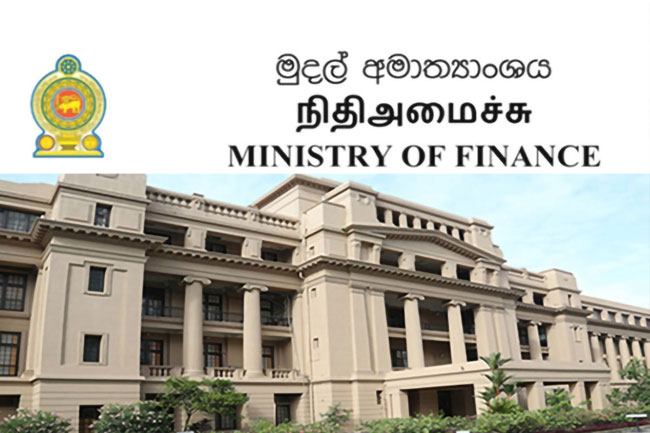By: Staff Writer
August 07, Colombo (LNW): Sri Lanka’s fiscal deficit narrowed significantly in the first half of 2025, driven by a strong surge in government revenues and tighter expenditure control, according to the Finance Ministry’s latest Fiscal Review Report.
The report revealed that the budget deficit fell by 32.3% year-on-year to Rs. 405.6 billion during January to July 2025. This marked a notable improvement from the Rs. 598.9 billion recorded during the same period last year, reflecting the Government’s adherence to its economic stabilisation programme under the IMF-backed reform agenda.
A key factor behind this improvement was a 24.7% increase in total revenue—including grants—which reached Rs. 2.3 trillion, compared to Rs. 1.8 trillion a year earlier. Major gains were reported in income and value-added tax (VAT) collections.
Income tax revenue rose by 9.2% to Rs. 489 billion, while VAT receipts jumped by 27.6% to Rs. 876 billion. In total, government revenue collection by mid-year represented 46.9% of the annual target, with the Inland Revenue Department contributing the largest share at 48.2%, followed by Customs at 45.6%.
The re-opening of vehicle imports played a major role in revenue growth. Excise Duty from motor vehicles surged by 335.6% to Rs. 129.1 billion, following the lifting of import restrictions on 1 February. This trend also reflected in VAT on imports, which rose 34.3% to Rs. 354 billion, and Special Commodity Levy collections, which increased by 70.5% to Rs. 77.6 billion.
However, not all Excise categories performed equally. While liquor taxes rose by 9.2% to Rs. 108.2 billion, cigarette-related Excise revenue declined by 17.9% to Rs. 44 billion.
The IMF, in its Fourth EFF Review, cautioned against over-reliance on vehicle import revenues, which accounted for nearly 80% of revenue gains in 2025 so far. The Fund emphasized the need for contingency plans to protect medium-term fiscal sustainability if this revenue stream falters.
Total government expenditure during the period rose by 10.9% to Rs. 2.7 trillion. Recurrent expenditure increased by 13% to Rs. 2.5 trillion, while interest payments alone grew by 10.7% to Rs. 1.2 trillion. In contrast, capital expenditure and net lending dropped by 8.6% to Rs. 224 billion.
Highlighting concerns over under-execution of capital spending, the IMF noted weaknesses in project prioritization and urged the use of its upcoming Public Investment Management Appraisal (PIMA) technical support to improve project planning and delivery.
The mid-year fiscal performance underscores both progress and continued challenges in Sri Lanka’s economic recovery path.
